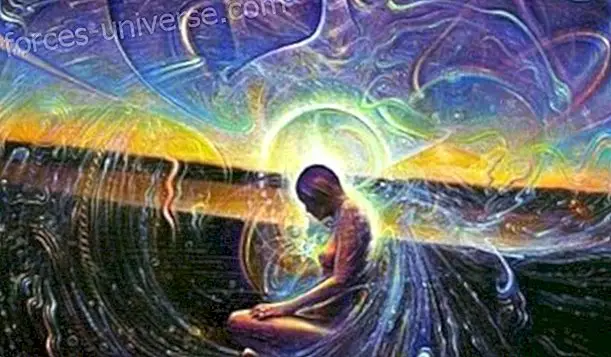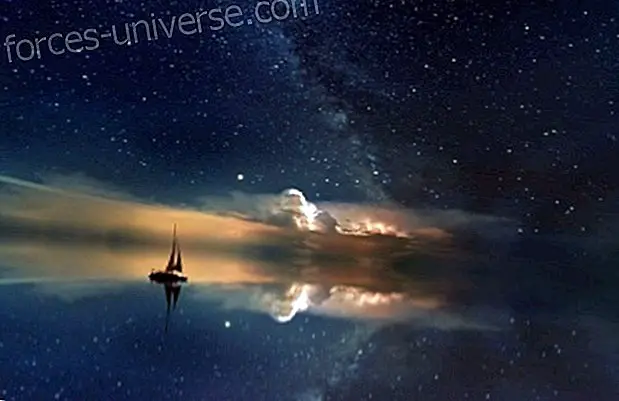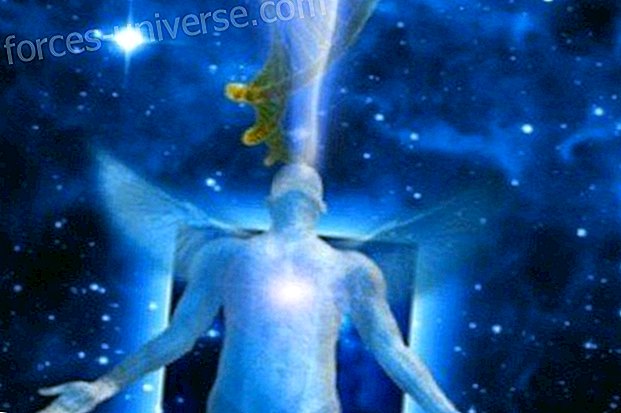I was once talking with a friend with enthusiasm about some studies I had recently discovered about how our mind works, life after death, or the Near Death Experience (ECM) and with complete seriousness the person stopped me and said: The studies ?, oh that they cannot believe studies like that. At that time, the conversation ended before beginning.
That said, if you are convinced that life is finite and there is no heaven or any kind of existence beyond the physical, it is very likely that nothing I can write do in You make no difference. But, if you are open to some ideas that are intriguing, it could be valuable to read a little about the ongoing debate of life after death before fully realizing your mind.
For me, there are two primary questions without answers: 1- Is there consciousness separate from the body or is it simply a biological or chemical result of the brain? 2- Is life a material and limited manifestation, or is it really an eternal quantum experience that never begins and never ends? Answer these two questions, to a large extent determine if the door is opened or closed immediately in any further discussion about eternal life.
First, I will admit that I am biased towards the belief that consciousness is primary and much more than the way the brain works . I also tend to believe that life is eternal, what it means is that it exists before and after and that it works together with my physical body. I am quite sure that all life is recycled by material and spiritual form. But I am definitely skeptical about whether there is a "celestial" location as described by anyone.
Many times I find the descriptions a bit traditionally religious for my liking, I prefer a more holistic and cosmic approach to such questions, and while humbly acknowledging that I am as guilty in knowledge as many, I spent the last couple of days investigating what I believe That are fascinating aspects of the information that I both support and argue against my previous questions.
Some argument against the belief of near death experience
- Millions of people have reported near-death experience (NDE) since ancient times.
- Descriptions of NDEs can be found in folklore and writings from around the world, so NDEs are not limited to any religion.
- There are numerous consistencies in the vast majority of NDEs, regardless of age, sex, nationality, religion, ethnicity, culture, etc., of the person.
- Young children under 5 who are too young to have internalized the near-death experience have reported another life of consistent experiences.
- People who have never heard of them also report similar experiences.
- People who have been blind since birth refer to similar visual accounts of their NDE.
- There are stories of people on their deathbed that contain similar themes.
- Hundreds of scientific articles have been written in the last 35 years about near-death experience by highly accredited and respected professionals.
- The NDE is similar to a mystical experience: a sense of cosmic unity or the transcendence of time and space, the deeply positive mood, the sense of the sacred, the noetic quality or intuitive, paradoxical illumination, with ineffability, transience, and persistent positive side effects.
- There is no direct relationship between religiosity and visions on the deathbed, although it has been found that an individual's belief system influences the interpretation of experience.
- After the experience of a person who has had an NDE as opposed to others who have been about to die without claiming an NDE, they reported a greater sense of spirituality in their life including a total tolerance for all forms of religious worship. .
- Hundreds of experience near death have been verified. (That is, Pam Reynolds) who had a severe cerebral aneurysm so he lowered his body temperature to 60 degrees, his heart rate and breathing stopped, his brain waves flattened, and then the blood was drained from his head. She experienced an NDE while her body was in this “deadlock”, in addition to having an out-of-body experience (OBE) that allowed her to report in detail what was happening in the operating room that was subsequently verified by the people that is here.
- Resuscitative research now shows that you can be technically "dead", not heart rate or brain function and if your character is maintained under the right circumstances, your memories (your soul) can be revived several hours later, showing that there is separation of the functioning of your brain and your consciousness.
- Increasing amounts of scientific evidence show that consciousness is separated from the brain and can work independently of it.
- 78% of Americans say they believe in the afterlife, although this does not mean that it is "true" does point to something that can not be explained simply as illusion and deserves study.
- 48% of Americans say they believe in ghosts.
- 18% say they have felt or been visited by ghosts.
- 29% say they have been in contact with the dead.
- 24% of Americans say they believe in reincarnation.
- There is convincing evidence of reincarnation (especially young children between 3 and 5) has been documented and verified.
- Reliable tests of regression to past lives to cure and erase physical and psychological problems, along with verified information including the ability to speak unknown languages fluently.
- Ongoing scientific studies that demonstrate that consciousness is a non-local, not physical, quantum reality.
However, despite the above information, a large number of skeptics do not take it into account and strongly believe that near-death experiences are nothing more than an illusion or the brain's reaction to a traumatic experience.
The majority of these detractors are scientists who are firmly committed to the growing vision of the material reductionist world provided by science since the seventeenth century. Back with that vision of the 1600s where those who wanted to dedicate themselves to science should follow the orders of the prevailing religious authorities that stay away from anything that could be considered spiritual, invisible, in relation to a deity or having to See with a soul if they wanted to keep their head on their shoulders.
While the scientific search for the material world has reaped enormous benefits, many scientists have become as anti-religious in the study and their intention has now made them as fundamental in their beliefs and approach as any religious fanatic.
In fact, many scientists, like atheists, are pseudo-skeptics . A pseudo-skeptic is defined as any person who has this type of belief strongly predisposed to an emotional and intellectual level that blindly makes "faith" in the truth of one thing or another. Or, as Dave Pruett has said , “In short, scientism, it is to science what fundamentalism is to religion.
Keep in mind that we are not talking about a religious belief, but rather a belief that some aspect of being, energy or information continues after death.
AUTHOR: JoT333, editor of the great family of hermandadblanca.org






